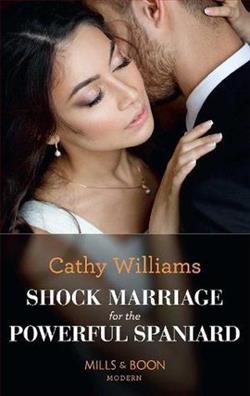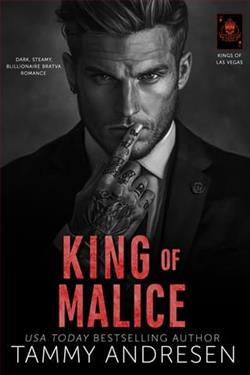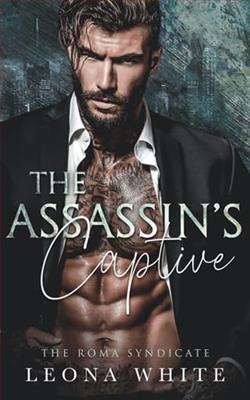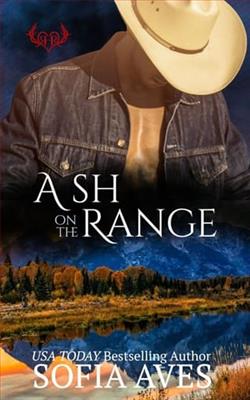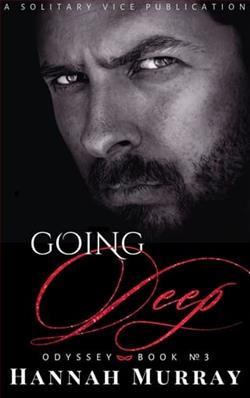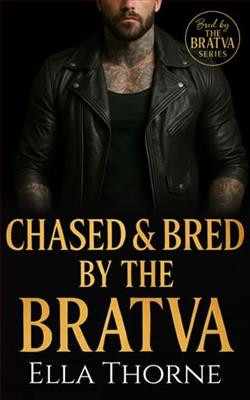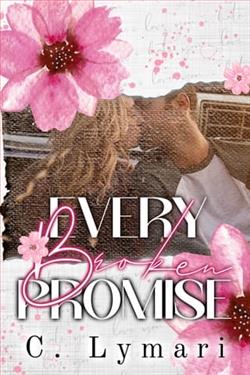Page 25 of The Bear's Heart
Cei shifted uncomfortably. “I don’t think she means it to seem like that.” It felt as though he were making excuses for her. He probably was.
Arthur shook off his brother’s hand. “Not a word. Not a single word– ever. She might have been dead. And now she’s curious about my wife, she thinks she’ll send a message, and I’ll be at her beck and call.” He walked away from us, halted abruptly, then spun on his heel and returned, fists balled at his sides. “After everything she did and said– after how she manipulated me as a child– after leaving you and me to our fate– she thinks a simple summons will wipe all that away?”
Cei remained silent. Probably he couldn’t think of anything to say in reply to this tirade. I sat motionless on the fountain’s edge and watched them both.
Arthur walked away again, this time nearly to the bathhouse before he turned back toward us. “Why now?” His eyes narrowed in anger. “Why choose now to show an interest? What makes now so different from then?”
Cei’s eyes slid toward me. “The Ring Maiden.” He kept his voice low. “She knows you have the Ring Maiden as your queen.”
Chapter Ten
The next morning,we took the westbound Fosse Way out of Caer Pensa on our way to Din Tagel. Ahead of us lay Caerwysg, the Roman town which would one day become modern Exeter.
Dressed in the tunic and braccae in which I was most comfortable, I rode Alezan at the front of the heavily armed line of warriors strung out along the old Roman road. Arthur sent scouts up ahead of us and kept a few men further back as a rear guard. Every man was on the alert for sudden attack. We were entering, Arthur told me, the time of year when Saxon raids were more likely to happen. The seas were calmer, the weather more conducive to sailing, and men everywhere were hungry as winter dragged tardy feet toward its close.
Against my will, I’d been kitted out with my own mail shirt. This must have weighed a good twenty pounds, and made me hot and sweaty in the mild spring weather. A squall of rain that drenched us for twenty minutes brought a welcome relief, the rain plastering my hair to my head and trickling down my neck.
The paved Roman road led south-west past villages encircled by sturdy palisade fences, where excited children came running out to gaze open-mouthed upon the splendor of their king and his army. Between the villages lay farms whose inhabitants watched us with suspicion from behind their meager fortification of banks and ditches. From time to time we passed the ruins of abandoned settlements, some just charred footings, their acrid stink pursuing us along the road. Had they burnt down by accident or had raiders set them alight? No one remained to tell us.
In late afternoon, we forded a river beside the collapsed ruins of a bridge. The supports still stood, but the wood between them had long since rotted away. Posts on either bank marked where to cross. The water was so deep it would have made my feet wet had I not kicked them out of my stirrups and hooked my legs up high like a modern jockey. After that, the land rose steadily as we headed toward the south coast, and as evening fell, we reached the still inhabited remains of a small town beside the overgrown ruins of a Roman military fortress.
At least Arthur and I got a room with a proper bed in the ramshackle inn, unlike most of our men, who ended up bedded down in the stables and the barn beside it, or on the taproom floor. From the way they were holding their heads the next morning, I suspected the ones in the taproom had partaken too heavily of the barrels of cider belonging to the indignant innkeeper. But when Cei paid him generously, it put a smile back on his face.
For our second day of riding, we had drier weather and covered the twenty-eight miles from the nameless little town to Caerwysg in just under six hours. My knowledge of modern day Exeter’s importance had led me to expect it to resemble Viroconium’s decayed and crumbling version of a Roman city. What we found had more in common with the tumbledown town we’d left that morning.
As we rode down toward its once-imposing gate towers, Arthur must have seen the disappointment written on my face. The town, encircled by a much robbed-out stone wall, sat on the high ground above the eastern bank of the modern river Exe, which Arthur pronounced as Oosg. Entering by the unguarded east gate, we rode along the main street of the town toward the central forum, the tumbledown walls echoing the clatter of our horses’ hooves back at us. Not a soul was to be seen. We’d come upon a ghost town.
I looked a question across at Arthur.
“Fled inland,” he said. “The river here gives too easy access to Saxon pirates. Bringing their ships right up to the old wharves is easy for them. It’s long since anyone lived here.”
Scarcely a building had a roof on it, and the spring growth of new weeds was already pushing up between the cracked paving stones. Brambles and ivy shrouded the buildings, and the walls of many houses, attacked by the weather, had collapsed. A few stray cats and dogs slunk away from the sight and sound of us, and we heard distant running feet down side alleys. The only people who might be living here now would be the homeless and destitute.
In the forum, we halted. Here had once stood the basilica, but now that was long gone. Instead, broken columns pointed at the late afternoon sky like bony fingers, and the marble facing from the buildings lay in scattered chunks on the uneven weed-strewn paving stones. At some point, someone had constructed a small, wattle-and-daub church right in the center. The blackened thatch of its roof was much in need of repair, and clustered close around its mossy walls were the unmistakable humps of old graves.
“We’ll make camp here,” Arthur said, as his advance guard came trotting to join us from the street opposite, gesturing that all was clear.
Once we’d unsaddled our horses and fed them the crushed oats we carried in our packs, the men looted what wood still remained in the nearest ruined buildings and started a blazing fire outside the church. Arthur and I found ourselves in the center of the camp, his men spread out around us. Sitting on chunks of broken masonry, we ate a cold supper of bread, salted pork and onions, washed down with cider, warm from being carried next to the hot bodies of our horses.
With the fall of evening came the cold, a reminder winter wasn’t far behind us. After Cei had organized the guard rota, we wrapped ourselves in our thick cloaks, preparing to sleep on the hard ground. Bone weary after two long days of riding, I snuggled up to Arthur.
When I awoke, it was still dark, but a pale line in the east suggested dawn was on its way. For a moment, I lay wondering where I was, before the hard ground and the cold reminded me. Arthur had rolled away from me in his sleep, one arm thrown over his head. Wide awake now, and cold, I heard again the noise that must have woken me, and turned my head in its direction. A faint scraping, as if a door were being pushed open.
Arthur stirred as if he too heard it in his sleep, but he didn’t waken.
The abandoned church stood only yards away from us, and as I peered into the darkness, something seemed to move near the broken door. What was it? Darker than the darkness, a small shadow shifted, creeping toward the embers of our fire and closer to me.
A child. A little girl with long, ratty hair and a thin, hungry face. As she approached the fire, the soft glow of the still hot embers reflected faintly on her skin. She was looking at the remains of our evening meal: a few wooden plates and the bags the food had been carried in. Kneeling beside one of the saddlebags, with well-practiced stealth, she rummaged inside.
I watched.
Finding some bread, she broke off a chunk and stuffed it into her mouth, but the rest she set on a piece of rag laid out on the ground beside her. Diving into the bag again, she came out with a lump of hard sausage and then a couple of small onions. These joined the bread on her rag and, seemingly satisfied, she dragged the corners together to make a bag and scrambled to her feet.
“Don’t go,” I whispered.
Her head turned toward me, eyes wide with terror, frozen like a rabbit in a car’s headlights.
“I’m a friend,” I said quickly. “I mean you no harm.”








